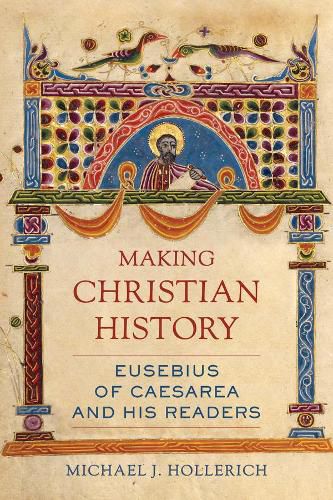Readings Newsletter
Become a Readings Member to make your shopping experience even easier.
Sign in or sign up for free!
You’re not far away from qualifying for FREE standard shipping within Australia
You’ve qualified for FREE standard shipping within Australia
The cart is loading…






Known as the Father of Church History, Eusebius was bishop of Caesarea in Palestine and the leading Christian scholar of his day. His Ecclesiastical History is an irreplaceable chronicle of Christianity’s early development, from its origin in Judaism, through two and a half centuries of illegality and occasional persecution, to a new era of tolerance and favor under the Emperor Constantine. In this book, Michael J. Hollerich recovers the reception of this text across time. As he shows, Eusebius adapted classical historical writing for a new nation, the Christians, with a distinctive theo-political vision.
Eusebius’s text left its mark on Christian historical writing from late antiquity to the early modern period-across linguistic, cultural, political, and religious boundaries-until its encounter with modern historicism and postmodernism. Making Christian History demonstrates Eusebius’s vast influence throughout history, not simply in shaping Christian culture but also when falling under scrutiny as that culture has been reevaluated, reformed, and resisted over the past 1,700 years.
$9.00 standard shipping within Australia
FREE standard shipping within Australia for orders over $100.00
Express & International shipping calculated at checkout
Known as the Father of Church History, Eusebius was bishop of Caesarea in Palestine and the leading Christian scholar of his day. His Ecclesiastical History is an irreplaceable chronicle of Christianity’s early development, from its origin in Judaism, through two and a half centuries of illegality and occasional persecution, to a new era of tolerance and favor under the Emperor Constantine. In this book, Michael J. Hollerich recovers the reception of this text across time. As he shows, Eusebius adapted classical historical writing for a new nation, the Christians, with a distinctive theo-political vision.
Eusebius’s text left its mark on Christian historical writing from late antiquity to the early modern period-across linguistic, cultural, political, and religious boundaries-until its encounter with modern historicism and postmodernism. Making Christian History demonstrates Eusebius’s vast influence throughout history, not simply in shaping Christian culture but also when falling under scrutiny as that culture has been reevaluated, reformed, and resisted over the past 1,700 years.